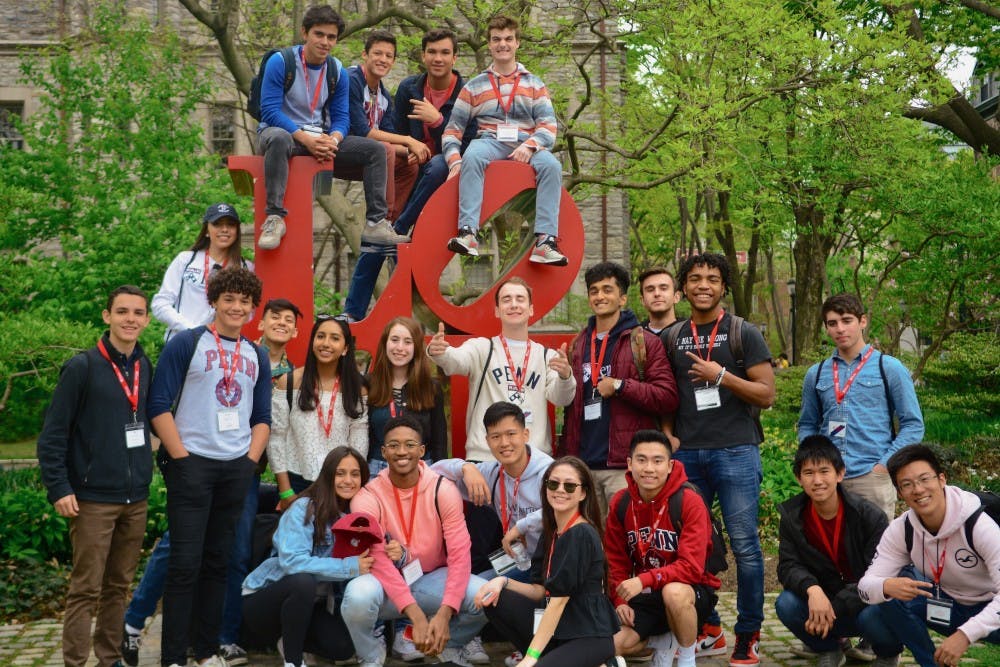
The built-in advantage of being a child of someone who attended an Ivy League University is not something I have. Nor is the built in advantage of being the child of someone who has a college degree. That doesn’t make me any less capable of school spirit. It does, however, make my family less capable of donating to my college, and thus, makes me a less profitable investment for the university. The idea that legacy admissions at universities are necessary because places like Penn are run like a business is predicated on the problematic assumption that elite education should be run like a business. This promotes the idea that subsidizing the wealth of legacy families is acceptable and admissible, even though this practice inculcates difficult-to-remove barriers for upward mobility for people who are not as fortunate or privileged.
To be clear, I directly benefit from a financial aid package, because Penn’s financial aid policy meets 100 percent of demonstrated need. Federal grants, a work-study I take full advantage of, and a longstanding family donation allow me to attend this school. I am more appreciative of this financial aid package than words can express because it is allowing me to receive an education I value above most anything else. That does not, however, mean our higher education system is not a broken system that posits education as a commodity not everyone has access to.
The argument that legacy admissions shows a “respect for tradition” supports the idea that tradition is inherently aristocratic, and fundamentally disrespects education as an equalizing entity. The maximization of revenue is the university's primary goal, and the admission of legacy students is a way of ensuring reciprocal donations. On a Penn website for alumni, under the subhead “What else can I do to improve my child’s chances of being admitted?” is the answer, “Legacies who apply to Penn Early Decision receive thorough consideration in the application process.” This is reinforced by the statistic that 25 percent of early decision admits for Class of 2022 are legacies.
The argument that legacy admissions are necessary because it guarantees creating a population of qualified workers who will give back to their university is deeply rooted in the harmful notion that making money is hierarchically more important than learning. Not only do I have a fundamentally disparate valuing perspective, but the practical applications of estimating donations over actual education stunts class mobility and reinforces discrimination, passing it off as “tradition.” Meanwhile, this country’s traditions are rooted in prejudice. If 4,264 out of 10,176 Penn undergraduates are white in 2019, imagine this percentage just twenty years ago. And then tell me legacy preferences don’t reinforce this country’s discriminatory traditions.
This “legacy of giving” is tied to families who donate. But if parents make tax-deductible donations, they should not receive anything in return for said donation, much less the admission of their child to an elite university. I know that there’s plenty of legacy students at Penn who are just as qualified, just as motivated, just as ambitious, and just as passionate about learning as any other student. I’m not disparaging their success or their intelligence. It is the system that is faulty, and it is the people who are already disadvantaged who pay. The locus of fault in this situation doesn’t fall on the shoulders of legacy students. A prioritization of legacy admissions makes it even more difficult for people of color, first generation, and low-income students to gain admission to prestigious universities, but that doesn’t make the circumstances of a legacy’s life any more in their control than the circumstances of mine. It is an awareness of their privilege that I ask for; an awareness of the broken system that preserves their privilege that I ask for.
Legacy admissions does one thing correctly— eliminate the idea that elite education operates on the principle of meritocracy. If the price of tuition weren’t enough of an indicator, legacy admissions prove that elite education is a system created for the rich, and reinforced by the children of the rich. If you’re happy to attend the school your grandfather went to, far be it for me to rain on your parade. I’m aware that if I have kids in the future who apply and are accepted to Penn, they will be legacies. And I hope they have pride in attending a prestigious school just as I have pride in attending one.
I think it’s important for every student to be aware of the hypocrisy associated with schools that claim they are tools for equalization and social mobility, when it fact, they are self-sufficient conveyor belts of subsidized privilege. MIT doesn’t take into account legacy status, and they’re doing pretty well. So why do we?

SOPHIA DUROSE is a College junior from Orlando, Fla. studying English. Her email address is sdurose@sas.upenn.edu.
The Daily Pennsylvanian is an independent, student-run newspaper. Please consider making a donation to support the coverage that shapes the University. Your generosity ensures a future of strong journalism at Penn.
Donate



